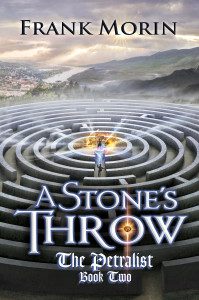 Asking someone which genre of books they prefer most is like asking someone what’s their favorite ice cream. Everyone has an answer, but often they don’t understand why they prefer one over another. Or they’ll cite specific examples they loved within a genre, or perhaps discuss common tropes. Those definitions of genre are limiting and exclusive.
Asking someone which genre of books they prefer most is like asking someone what’s their favorite ice cream. Everyone has an answer, but often they don’t understand why they prefer one over another. Or they’ll cite specific examples they loved within a genre, or perhaps discuss common tropes. Those definitions of genre are limiting and exclusive.
As has been pointed out in other posts this month, genre a marketing label, but books can vary widely within a genre, or fall across multiple genres. For example, my Facetakers series is a sci-fi time travel thriller, but it also has a cool magic system. It’s hard to pin it down to a single genre. I could just as easily call it an alternate history fantasy, but it reads more like a sci-fi thriller, so that’s the slot it’s been assigned. The story is more powerful for the mash-up, but that cross-genre approach does present challenges for finding the right readers because people forget one important truth.
This truth is taught by David Farland, who has a knack for audience analysis beyond anyone I’ve ever met. He points out that genre labels generally reflect the most powerful emotional element in the story. Some genres are easy to spot:
Horror – well, obviously.
Humor – this one is often mixed into the other genres (humorous fantasy, humorous sci-fi, etc)
Romance – again – obvious
But what about science fiction and fantasy? There’s a reason these two genres are combined so often in story telling and in how they’re shelved, and it has nothing to do with the size of their audiences. These both share a common emotion: Wonder.
Think about it, whether a far distant planet is reached by interstellar flight or by flights of fancy, whether they include arguably-possible technology or unexplainable magic, the greatest draw for these genres is the wonder of discovery and exploring new worlds.
Many of our stories contain a lot of other emotions, though, and that can lead to genre mashing and a bit of confusion. If there’s lots of horror in a SFF story, it’s often called Dark Fantasy. I already mentioned Humorous Fantasy. If there are lots of action beats, it may be called a SFF Thriller. If it explores history and gives it a twist, it’s called Alternate History Fantasy or Time Travel Sci-Fi. Etc.
So when analyzing the genre of your story, or of those stories you love, consider the emotional journey the story immerses you into. What was the primary emotional beat? For those stories hard to pinpoint in a narrow genre, this might be the most accurate way to describe it.
About the Author: Frank Morin

 Frank Morin loves good stories in every form. When not writing or trying to keep up with his active family, he’s often found hiking, camping, Scuba diving, or enjoying other outdoor activities. For updates on upcoming releases of his popular Petralist YA fantasy novels, or his fast-paced Facetakers scifi time travel thrillers, check his website: www.frankmorin.org
Frank Morin loves good stories in every form. When not writing or trying to keep up with his active family, he’s often found hiking, camping, Scuba diving, or enjoying other outdoor activities. For updates on upcoming releases of his popular Petralist YA fantasy novels, or his fast-paced Facetakers scifi time travel thrillers, check his website: www.frankmorin.org

